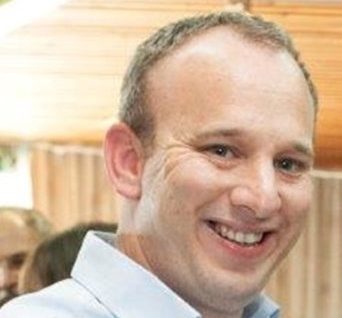OpEds
No Biden time in pandemic presidency

I felt sorry for President Joe Biden and Vice President Kamala Harris on Inauguration Day. Instead of being sworn in in front of hundreds of thousands of Americans, they were greeted by a tiny, socially-distanced audience and bitterly cold weather. They also didn’t have the honour of going to all the celebratory balls, being able to reflect on their November victory, and imagining what the next four years might look like.
There was some upside to this socially-distanced celebration. While the president and First Lady Jill Biden weren’t able to shuttle between glitzy balls, they were able to share their inauguration with the country through smart phones, televisions, car radios, and computers.
A star-studded cast performed in the Tom Hanks-hosted Celebrating America which replaced the balls. You got to see America at its finest for the duration of the concert as a diverse group of celebrities and an equally diverse group of ordinary Americans beamed into the nation’s devices for 90 minutes.
The production was in stark contrast to the insurrection on the Capitol on 6 January. The America on display on Inauguration Day was also very different to the America on display on Inauguration Day in 2017 when Donald Trump became president.
Biden’s celebration was about a cross section of musical genres and a broad swathe of the population. Celebrating America included multiple snippets of healthcare workers.
Joe Biden’s first priority will be the fight against COVID-19 and getting as many Americans vaccinated as quickly as possible. He has set himself an ambitious target for the rollout of vaccines.
He will hope for better leadership in dealing with this scourge, which has accounted for far too many people and has seen so many Americans lose businesses and jobs.
Biden knows that he will probably be a one-term president and that he will have only four years in the Oval Office. As he and Jill Biden watched the impressive firework display from their balcony on 20 January, he must have thought about the days and months ahead, and how his handling of the pandemic will be what ultimately defines his presidential legacy.
Biden’s other immediate priority is to use his slender control of Congress and his early new year’s gift of control of the Senate to his advantage. He knows he probably has only two years of control of the House of Representatives and the Senate. This is because the party which controls the White House typically gets punished in the mid-term elections every two years after the presidential elections.
Israeli Prime Minister Benjamin Netanyahu woke up in the early Jerusalem hours on 9 November 2016, rubbing his eyes and thinking how he would be working with Hilary Clinton for the next four years. He would have been stretching and thinking that it’s not ideal, but at least Barack Obama is no longer going to be in the White House.
It ended up a much better outcome for Netanyahu, as he and Donald Trump developed a special relationship and even if Trump’s off-script remarks might have made the Israeli prime minister cringe, Netanyahu knew that he would kibosh the Iranian nuclear deal. He also knew that the Democratic obsession with the two-state solution to end the Israeli-Palestinian conflict would be way down the priority list.
It was a wonderful four years for Netanyahu. He witnessed United States Ambassador David Friedman opening a new American embassy in Jerusalem, recognition of Israeli sovereignty over the Golan Heights, and agreements penned between Israel, the United Arab Emirates, and Bahrain followed by normalisation ties with Morocco and Sudan.
Netanyahu’s biggest concern will be Biden and Secretary of State Antony Blinken leading America back to negotiations with the Iranians and re-joining the Joint Comprehensive Plan of Action deal. Biden and Blinken will believe that America will have better control over Iran’s military and nuclear aspirations by being part of the deal than being on the side lines. At the same time, Biden will understand Israel and many of the Gulf state nations’ concerns about Iran and the potential threat it poses.
When Biden announced Blinken as his secretary of state, Blinken used the moment to recount the story of how his stepfather was one of the few Jewish children from his Polish school to survive the Holocaust, and how his stepfather was rescued by an African-American GI (general infantry) during a Death March.
He told this story to illustrate how important America’s role in the world is, and how human rights must be the cornerstone of American foreign policy. This could well result in the American relationship with the Saudis taking some strain over the next four years. It will also result in America being less enamoured with strongmen and more concerned with democracy and stronger ties with governments who share the Biden-Harris administration’s emphasis on human rights.
At the same time, America won’t work to weaken any of Israel’s new peace agreements, but also hope to improve ties between Israel and the Palestinians and Israel and its other neighbours. Ultimately, it’s of far more consequence for Israel and America for there to be closer ties with Jerusalem and Ramallah than Jerusalem and Rabat or Jerusalem and Abu Dhabi.
I expect the new United States president to make few international trips over the next couple of years. His priority will be vaccines, the economy, and infrastructure improvement. Before making peace with Israel and its adversaries, he will focus on lowering the tempo in his country and bridging the gap between the rust belt, the bible belt, and the coastal elites.
He knows time isn’t on his side, and he knows that his legacy is more likely to be defined by an injection in an arm than events in the Middle East.
- Wayne Sussman writes on elections for Daily Maverick, and presents regularly on American politics.